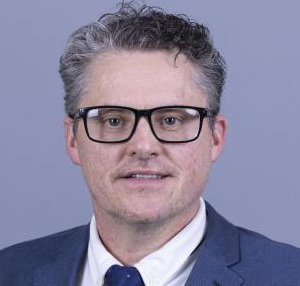Between 10 per cent and 20 per cent of all normal follow consultations contain the difficulty of the usage of unlawful medicine, in line with a submission by the Irish School of Basic Practitioners to the Joint Committee on Drug Use
The School says in its submission that it sees Folks Who Use Medication (PWUD) as members of the group, relatively than criminals, and that it ‘recognises the ‘stigmatisation, penalisation and social deprivation’ which can be vital obstacles to remedy, and which impede the possibilities of a sustained restoration for PWUDs.
It stated it supported a ‘compassionate, non-judgemental, non-punitive, health-led strategy to PWUDs in search of assist with drug use and habit’ and that it recognised that ‘criminalising our residents who use medicine doesn’t handle or remedy the societal issues of drug misuse.’
The School stated it additionally supported the growth of HSE specialist clinics and the growth of companies in these clinics to included evidence-based remedy for ‘all chemical and behavioural addictions required to fulfill the rising wants of sufferers presenting for remedy’.
The gist of the ICGP’s submission is that they’ve skilled 350 GPs in habit remedy, that drug use is a wider social downside than merely a medical one, and that extra focused funding in disadvantaged areas in wanted to handle a few of the underlying issues.
The Irish Pharmacy Union’s strategy appears to be to postpone any elementary adjustments indefinitely.
“The IPU contends that any concerns concerning to Decriminalisation, Depenalisation, Diversion and Legalisation ought to solely happen when a strong complete authorities coverage is developed and built-in throughout all related authorities departments and public companies,” it stated in its submission.
Translated from lobby-speak to English, the pharmacists don’t need something to occur except a big proportion of the suspected future ‘funding’ within the space goes to the pharmacy sector. They counsel that they will present:
- Opioid substitution remedy (OST), needle change and a provide of naloxone for suspected opioid overdose.
- Affected person care, well being screening, and focused interventions to sufferers participating with hurt discount companies through their group pharmacy.
- Public training to native communities through their group pharmacy on drug-related harms to incorporate signposting to the suitable companies and helps accessible.

Denis O’Driscoll, chair of the Naloxone Advisory Group to the HSE, and vice-president of the IPU
Whether or not they can or not, or whether or not the group pharmacy is the place to produce such companies is an open query. Previously, there was resistance by some pharmacists to treating addicts, and that will increase the query of entry for PWUD if some pharmacists have been to decide out of any future scheme.
The IPU is placing strain to the Division to take away the necessity for a prescription for Naloxone – a life-saving antidote for overdosing addicts – and pharmacist Denis O’Driscoll instructed a listening to yesterday morning that he and others have been campaigning on this subject.
O’Driscoll – who’s chair of the Naloxone Advisory Group to the HSE in addition to vice-president of the IPU stated that different jurisdictions had chosen to disregard EU laws that makes prescriptions for Naloxone necessary.
He additionally argued that having the drug accessible to promote over-the-counter in a pharmacy can be the ‘very best’ strategy to promote the product and advocated Naloxone being accessible in public areas – very like defibrillators.